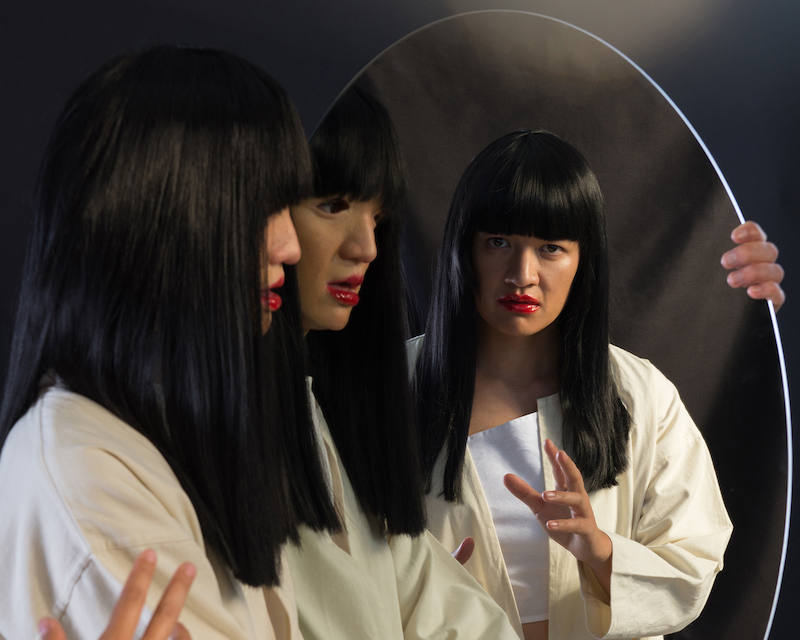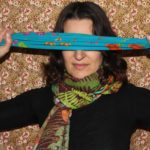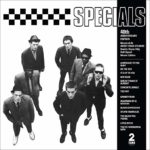Sui Zhen released her new LP Losing, Linda at the end of last month via Cascine.
Recorded following the loss of her mother, the record explores the intersections between human life and technology and also mortality within this. Crafting an evocative and experimental electronic tapestry that’s laced with melodies and spoken word it exists in the same orbit as Jenny Hval, Julia Holter and Holly Herndon. The lead single ‘Perfect Place’ possesses beguiling and catchy vocals set against minimal and esoteric sounds. It’s pop music but not as you know it.
Melbourne-based performance artist Sui is even building a digital ecosystem to go alongside this record, which you can see here. We sent Sui some questions in order to get to know her a little better.
Hi, how are you today?
Feeling calm and grounded from a weekend sleep in after a busy week.
What was the first song you ever wrote?
I think it was called “It’s okay”, written on acoustic guitar when I was around sixteen or seventeen. It was more like a letter to someone, that was sung over spare guitar chords. I remember procrastinating from studying for my senior highschool exams by writing songs, I just couldn’t help it. Once I discovered I could just wanted to keep living inside them and sang them over and over again in private like a guilty pleasure.
What was it like?
It was confessional, first person perspective style of songwriting. There was no strumming just finger picking and spare vocals that lead up to an emotional chorus.
How do your songs start out?
With procrastination. I felt so stifled trying to study alone in my Dad’s house with my step mother. I was away from my family home with my Mum and siblings, kind of isolated and without any semblance of my personality reflected back at me within that house. I think I needed to make music to understand myself better in that context.
What was the first thing you released?
I uploaded a bunch of songs to MySpace and Last Fm back in the early mid-2000s. I think the release was called ‘My Orange Room’. Thankfully, the internet seems to have lost it. The next release was my self-titled EP, Sui Zhen which I recorded properly in a studio, and got nice artwork for and distribution. I learnt a lot from self releasing music back in those early days before the digital era of releasing music really took off.
What’s the music scene like back home?
I grew up in the suburbs of Sydney. There was a lot of prog rock and folky music – lots of guitar based song writing. I felt into those genres because I could see it being done around me. I occasionally sang on electronic music artists work and was getting involved in the DJ, club scene from an early age. It wasn’t until my early-mid twenties when I moved to Melbourne that I really started to buy my own synths and drum machines to start producing electronic music myself.
The music scene in Melbourne is diverse and prolific. There are many talented and interesting artists based in this city making all kinds of music; electronic, synth pop, new wave, jangly guitar pop, ambient or sound art etc. I think for a music scene to be healthy other factors are at play too; affordable rent, available spaces for studios and rehearsals; other creative people to collaborate with. You need a certain amount of free time to be able to pursue a creative practice as a career – Melbourne presents a lot of opportunities for artists at varying levels to get some activity happening.
How would you describe your music in five words?
Atmospheric, spoken-word dance, surreal synth-pop.
Which artists do you admire?
Laurie Anderson, Jenny Hval, Julia Holter, Jim Jarmusch, Ryuichi Sakamoto, Palmbomen, Annie Lennox.
What would be your dream collaboration?
Actually I’m super into Mark Ronson’s collaborative tracks with vocalists, the Miley Cyrus and Lykke Li collabs are impressive. I saw him talk when I was a participant at the Red Bull Music Academy. I have always thought it would be interesting to collaborate with someone who was making mainstream appeal pop but with good (relatable) taste.
What are your views on sexism in the music industry?
I think the music industry is a lot more diverse than it was ten years ago, or more when I was first starting out. I can recall issues I’ve had with racism coupled with sexism but I’ve moved past a lot of that. In the last few years I’ve taken part in mentorships for younger artists. I think the best way I can be helpful is to be a role model where possible and help to instill confidence in the next generation to forge their own path and to set high standards for how they are treated. There’s always room for improvement with regards to being inclusive, respectful and supportive of those who are underrepresented.
Can you tell us about your new release?
It’s called Losing, Linda and it’s out now. I wrote a lot of the music whilst on residency in Japan. I wanted to further my commentary on selfhood and identity in the digital age – though to deepen the exploration into selfhood beyond our biology and mortality. The record has been described as a “lovingly personal, humanistic document of our ever-changing world, the things we lose along the way and the insights we gain from loss itself”, which I like.
What’s the best act you have played with so far?
I played a set before Suzanne Ciani at Sugar Mountain Festival a few years ago, that was really nice.
Are you playing any shows/festivals this autumn?
Yes, I’m playing 13 October in Melbourne for my album launch and across the east coast of Australia 18 Oct in Canberra at Sideway, 19 Oct in Sydney at Freda’s and 25 Oct at Altar in Hobart. Looking forward to playing overseas in 2020.




